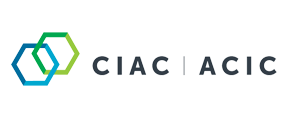Canada’s chemistry and plastics industries share federal government’s concerns about mismanagement of plastic waste
June 10, 2019
Ottawa – Representing the broad plastics value chain in Canada, the Canadian Plastics Industry Association (CPIA) and the Chemistry Industry Association of Canada (CIAC), fully endorse the objective of stopping waste, including plastic waste, from leaking into the environment.
This is why CPIA and CIAC support the government as they work on the science to better understand the implications of plastic waste in the environment. Specifically, we welcome the plans for producer-led extended producer responsibility initiatives which will lead to more harmonized collection and help build markets for recycled plastics.
We would only caution government not to pre-determine the outcome and consider impacts throughout the lifecycle of plastic products and their alternatives. Any rush to judgment could have serious implications on industry’s ability to create a circular economy for plastics that supports a national zero plastic waste strategy.
“Plastics are key to our modern and sustainable way of life, but they do not belong in the environment. We understand the urgency of problem and are committed to being part of the solution,” said Carol Hochu, President and CEO of CPIA.
“CPIA and CIAC believe in the development of a circular economy for plastics that treat plastics as a resource to be kept in the economy and not leaked into the environment,” said Bob Masterson, President and CEO of CIAC. “Consumer education is important as we need a whole of society approach to the issue. Industry, governments, civil society and consumers must work together to solve this global issue.”
The Canadian chemistry and plastics industries are already stepping up to provide solutions: several members are founding members of the Alliance to End Plastic Waste, which is investing over $1.5 billion USD to deliver waste management solutions globally.
In 2018, CPIA and CIAC members also committed to 100 per cent of plastics packaging being re-used, recycled, or recovered by 2040, and 100 per cent of plastics packaging being recyclable or recoverable by 2030.
However, our members believe that creating an impression that safe, sanitary plastic materials are toxic through the Canadian Environmental Protection Act (CEPA) will ultimately make it more difficult for Canada to achieve its zero waste objectives.
CIAC and CPIA look forward to working with the federal government to support their science-based approach.
For more on what the Canadian chemistry and plastics industries are doing to tackle plastic waste in the environment, please see Canada’s chemistry and plastics industries making strides to tackle plastic waste and the report: Role of Chemistry in a Circular Economy for Plastics.





